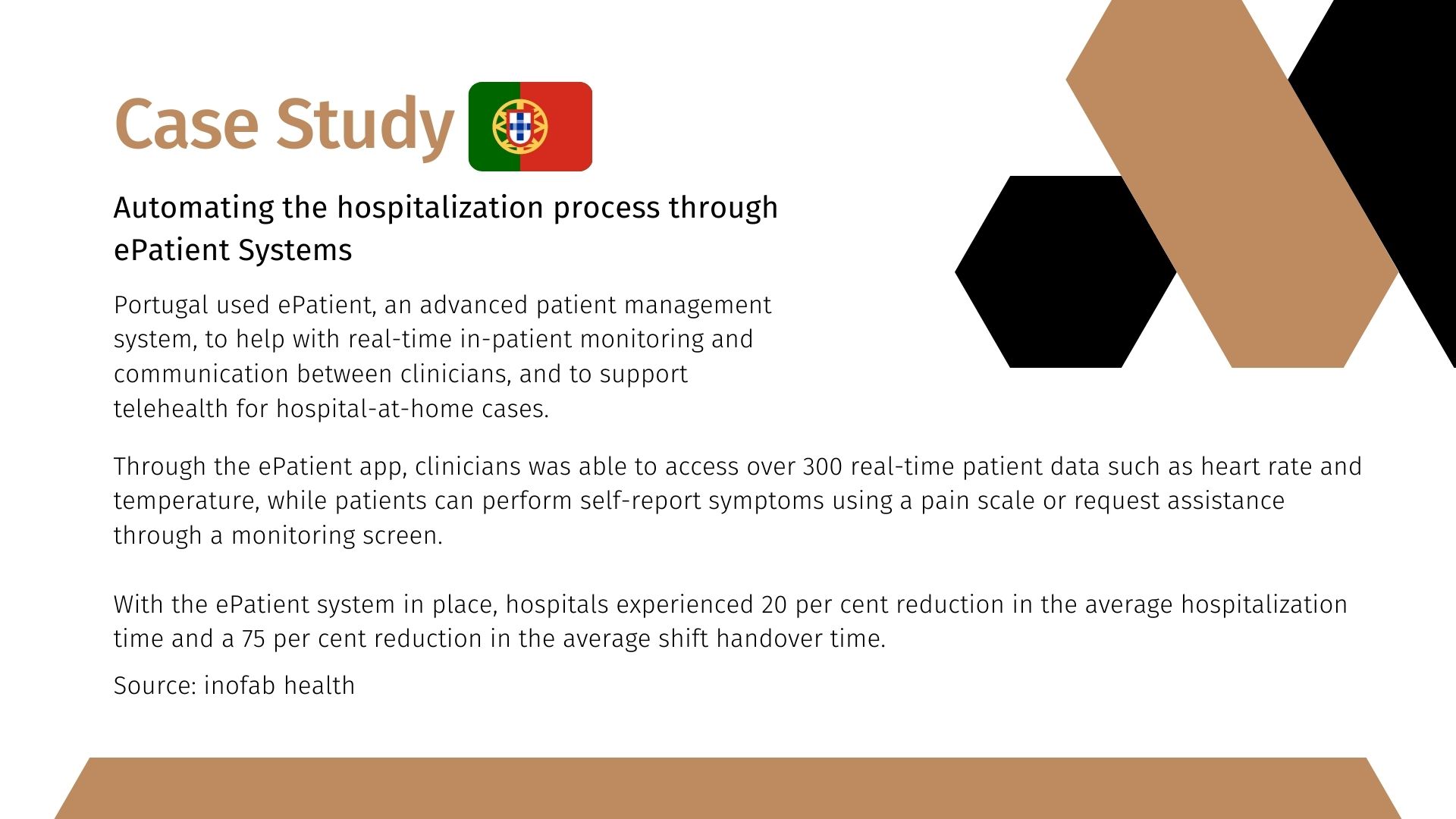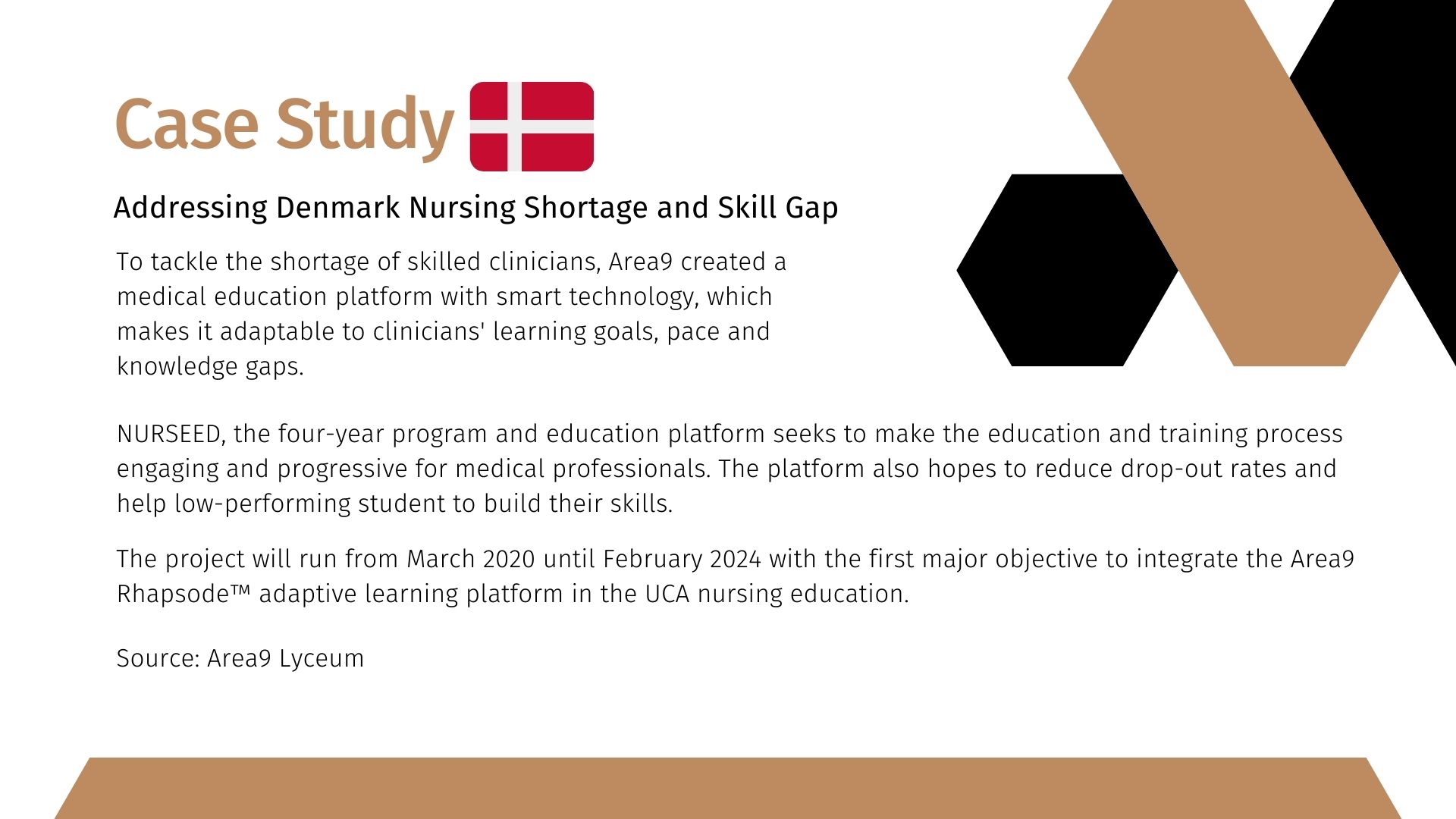< Back to insights
Published 27. Aug. 2021
Digital Healthcare: How Is Technology Transforming Health?
Digital transformation within the healthcare industry in underway. How are organizations facing these transformation?
In a post-pandemic world, it’s clear that the need for digital transformation in healthcare has become important. A survey done by McKinsey with 213 European physicians claims that more than 50 percent believe that telemedicine will be a significant part of a modern healthcare system.
With the digital healthcare revolution underway for European nations, it’s evident that hospitals and clinics will need to adapt to the emerging technologies and integrate digital health solutions as part of their strategy.
But what is digital healthcare? And how is technology transforming healthcare?
In this article, we take a look at some of how hospitals and clinics are integrating health digital solutions, how digitalization is used to fill the healthcare skill gap, and why data will a significant tool in the care industry.
Adoption of Digital Technologies In Hospitals
Europe has been facing unprecedented pressure within the healthcare system and the pandemic has shown that despite the improvement in quantity and quality of care, there is still a gap in efforts toward digitalization.
This is in part, due to several challenges such as bureaucracy in healthcare and costs of technology for organizations to implement digital technologies.
However, it does not mean that digital technologies are not being experimented with and utilized at all. In fact, due to the pandemic, certain countries are accelerating their adoption of digital and telemedicine solutions to help improve the quality of healthcare services provided.
One such example is Portugal’s use of the ePatient system for centralized and real-time patient data management. ePatient allowed clinicians to monitor and communicate to their patients remotely if they were not able to be present.

This adoption of a digital healthcare solution has made home care easier for healthcare professionals in Portugal as they can communicate with each other over the application.
The Skill Gap In Digital Healthcare
With digital systems in place, hospitals and medical professionals will need to learn how to fully utilize these solutions to deliver care. However, many in the workforce, especially the nurses’ field, are still lacking the skills and proficiency to handle digital healthcare solutions and technology.
Before organizations can scale up these digital systems, the digital divide and skill gap within the workforce need to be acknowledged. The workforce that delivers care to patients needs training and support to use new systems, and to use these technologies effectively to deliver high-quality digital care.
How should organizations overcome this skill gap challenge?
Everything starts at the top and clear strategic directions from those in leadership roles to integrate and train the workforce to embrace new technologies and skills must be the priority. It’s important, however, that when investing in new systems, it needs to be guided by the organization’s long-term visions and account for sustainability.
Beyond that, investing and supporting educational initiatives that provide a platform for the workforce to develop these skills will be essential in filling the medical skill gap. One such initiative is the NURSEED program by a Danish collective company that seeks to address the nursing shortage and skill gap in Denmark through a digital platform.

Future of Health Is Digital and Data
Putting the digital solutions in place and equipping the workforce with the necessary skills will lay the foundation for a digital healthcare revolution for many organizations. The next step is to fully embrace the healthcare digital transformation and understand the role of data analytics.
In recent years, big data tools have played significant roles in health care decision-making. This is in part due to the pandemic, which resulted in an enormous surge of health data being available, allowing for bigger and better analytics.
How can the health industry utilize these data?
Through descriptive, predictive, and prescriptive analytics, healthcare providers will have immediate access to necessary information, and improve overall efficiency.
For healthcare professionals, this would mean improved predictive modeling that can alert them of potential risks of chronic illness or even self-harm. And on a larger scale, it can even predict outbreaks.
With predictive and prescriptive analytics, organizations can expect a reduction in overall healthcare costs by reducing appointment no-shows, preventing equipment breakdowns, decreasing fraud, and even managing supply chain costs.
Bottom line: better data leads to better healthcare.
Technology Is Transforming Healthcare
There is no doubt that the healthcare digital revolution is underway and technology will transform the solutions and approaches in modern care. The question is now whether organizations are changing fast enough to keep up with the demands of modern healthcare.
Want your industry insights in 90 minutes? Check out our 90minutes episodes to get the latest trends in your industry in less than two hours.
